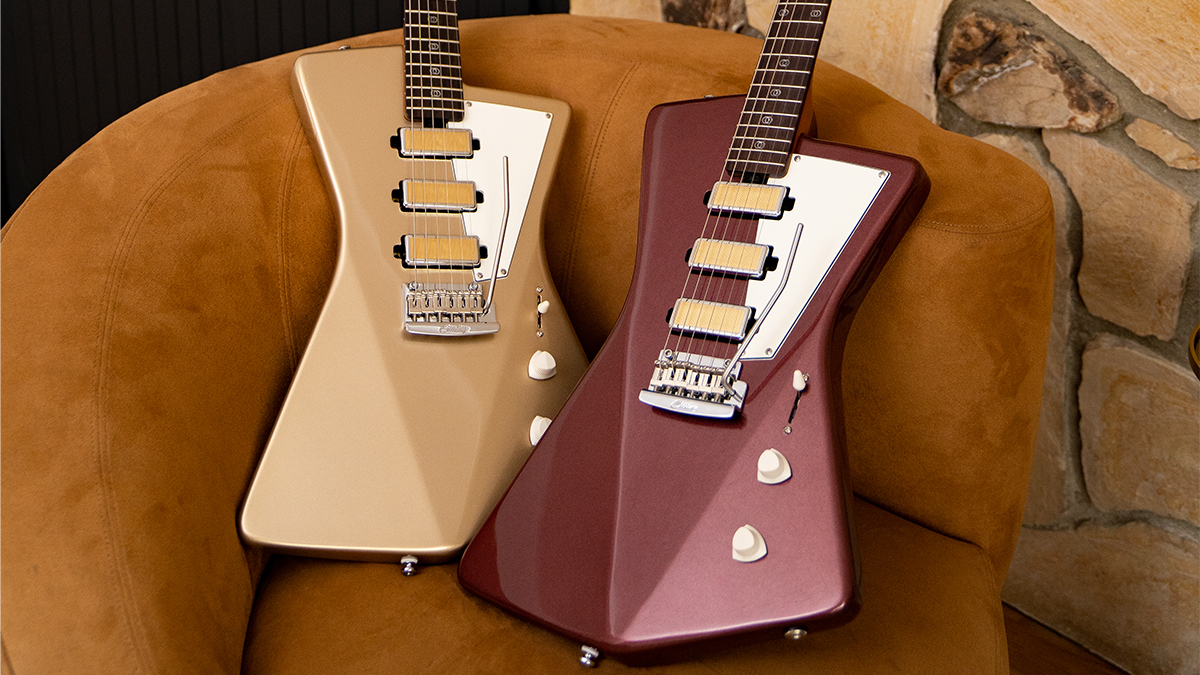“It’s ideal for players who prioritize comfort and offers a balanced tone”: This study claims to have identified the lightest tonewood of them all – and it’s not one you’d expect

Another day, another footnote added to the annals of the great tonewood debate – the ever-raging conversation around whether the woods used to construct an electric guitar or acoustic guitar actually make a difference to its overall sound.
This time, though, the development isn’t concerned with the crux of that debate, but a recent study that has shed new light on what it claims is the lightest tonewood of them all.
Find My Guitar analysed a whole range of the most popular tonewoods on the market and has concluded that nyatoh is the lightest option, edging out basswood and poplar, which both complete the top three.
These are followed by ash and limba, with the usual suspects such as mahogany, maple and alder cropping up ahead of okoume and – apparently the heaviest tonewood out there – pine.
Nyatoh, notably, is commonly found on Ibanez guitars – the recently revamped Quest series, for example, utilized this particular wood – with the study suggesting it's “versatile for various musical genres”.
“Its lightness makes it ideal for players who prioritize comfort,” Find My Guitar says in its findings, “and it offers a balanced tone with a slight emphasis on midrange frequencies.”

Nyatoh is a resonant Asian hardwood that shares some aesthetics and characteristics with Honduras mahogany. Sterling by Music Man is another brand that is also partial to nyatoh, as is Squier, suggesting it could be more of a presence in the future.
Get The Pick Newsletter
All the latest guitar news, interviews, lessons, reviews, deals and more, direct to your inbox!
While the study makes for interesting reading and goes some way beyond mere anecdotal evidence, the methodology nonetheless has some significant limitations.
Reportedly, the weight of each tonewood was calculated by analyzing the maximum and minimum weights of 466 solidbody guitars listed on retailers such as Sweetwater and Reverb, which were then used to calculate an average weight for each tonewood category.
This means that at no point were actual precisely measured slabs of nyatoh, limba or ash physically weighed in person, or closely compared side-by-side in a controlled setting.
Nor does it appear to compensate for the thickness of the model's respective bodies, or the weight of the necks they are paired with, or the variable density of different pieces of the same tonewood.
As such, while there’s certainly some merit in understanding the weight of a tonewood in a practical setting (how much it weighs when it’s been made into a guitar), there are simply too many variables that could, er, tip the scales here.
An eight-string solidbody guitar with two humbuckers, a Floyd Rose and locking tuners, for example, will inevitably skew the results.
Regardless, Find My Guitar makes it clear in its findings that this is the case, suggesting they are more of “a baseline”, so while we wouldn’t treat these as completely reliable conclusions, it does make for interesting reading.
This is but the latest development in the tonewood debate. On the one hand, you have the likes of Guthrie Govan saying that different materials significantly alter a guitar's sound, while others – such as the late Leo Fender – are skeptical.
Then there's Paul Reed Smith, who says tonewoods are important, but probably not for the reason you think.
To find out more, head over to Find My Guitar.

Matt is the GuitarWorld.com News Editor. He has a Masters in the guitar, a degree in history, and has spent the last 16 years playing everything from blues and jazz to indie and pop. When he’s not combining his passion for writing and music during his day job, Matt records for a number of UK-based bands and songwriters as a session musician.
“What blew me away was that everyone wanted the curly maple top. People were calling, saying, ‘I’ve got to have the bird inlays’”: Paul Reed Smith on raising the Standard 24, finally cracking the noise-free guitar and why John Sykes is a tone hero
“It combines unique aesthetics with modern playability and impressive tone, creating a Firebird unlike any I’ve had the pleasure of playing before”: Gibson Firebird Platypus review









